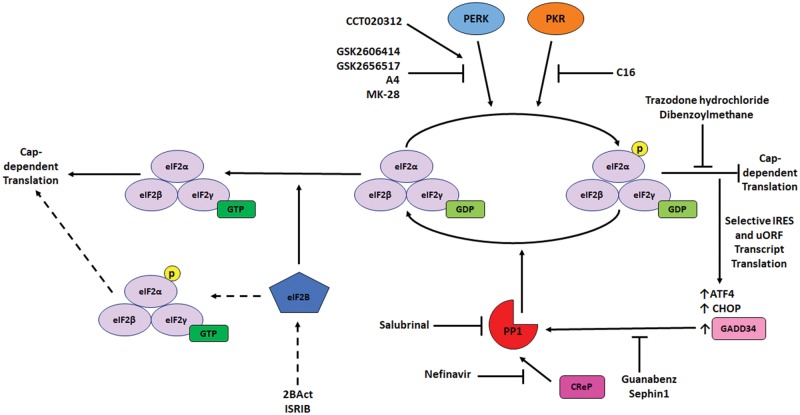Figure 2.
Pharmacological interventions targeting integrated stress response (ISR) signaling. The ISR can be pharmacologically targeted and modulated at many levels. Specific inhibitors of 2 of the branch kinases, protein kinase R (PKR), PKR-like endoplasmic reticulum (ER) kinase (PERK) have been developed to reduce eIF2α phosphorylation and prevent downstream ISR signaling. On the other hand, inhibitors of protein phosphatase 1 (PP1) and the cofactors which direct it to p-eIF2α under different conditions have been developed to raise p-eIF2α levels and prolong ISR signaling. On a more encompassing level, activators of eIF2B have been developed to allow it to interact with eIF2 even when phosphorylated, thus removing the translational block from ISR signaling. Additional repurposed drugs have also been shown to alleviate the translational block cause by eIF2 phosphorylation without dephosphorylation; however, the mechanism of this reversal is not known, whether through eIF2B or otherwise.

